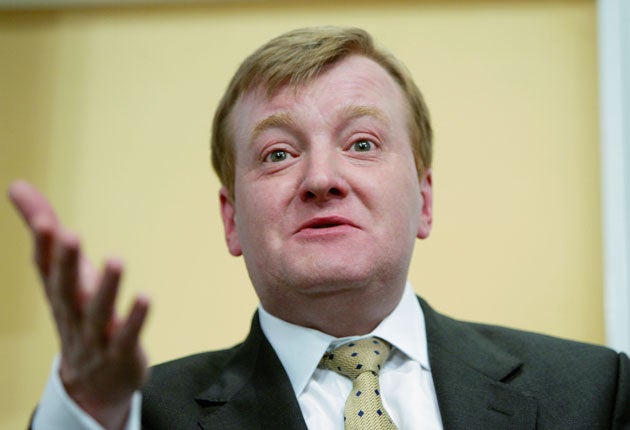Charles Kennedy: the most successful Liberal Democrat leader since the 1920s
Former leader, who has died at the age of 55, led the Lib Dems to their most successful election result in recent times, winning 62 seats in 2005

Your support helps us to tell the story
From reproductive rights to climate change to Big Tech, The Independent is on the ground when the story is developing. Whether it's investigating the financials of Elon Musk's pro-Trump PAC or producing our latest documentary, 'The A Word', which shines a light on the American women fighting for reproductive rights, we know how important it is to parse out the facts from the messaging.
At such a critical moment in US history, we need reporters on the ground. Your donation allows us to keep sending journalists to speak to both sides of the story.
The Independent is trusted by Americans across the entire political spectrum. And unlike many other quality news outlets, we choose not to lock Americans out of our reporting and analysis with paywalls. We believe quality journalism should be available to everyone, paid for by those who can afford it.
Your support makes all the difference.Charles Kennedy was the most successful leader of the Liberal Democrats since the 1920s.
Not since it won 158 seats in 1923 - under its old name the Liberal party - has it won as many seats as it did while Mr Kennedy was at the helm.
And in the party's modern form since the merge of the Social Democratic party and the Liberal party, he is the most successful leader, winning 62 seats at the 2005 election - more than his predecessor Paddy Ashdown and successor Nick Clegg ever achieved.
He inherited a party in 1999 with 46 MPs, increasing its presence on the opposition benches to 52 in his first election as leader in 2001 and adding another 10 in 2005 to reach 62 MPs - a record number in the party's modern form.
He handed the party over to Sir Ming Campbell in 2006 in a healthy condition, having increased the party's seats by a third under his leadership. Sir Ming never fought an election and was succeeded by Mr Clegg in 2007.
Despite Cleggmania temporarily sweeping him to fame, Mr Clegg failed to increase the number of Lib Dems in the Commons in 2010. The party's share of the vote increased by 1 per cent but the number of the party's MPs fell to 57.
And after five years of coalition with the Conservatives - a move Mr Kennedy opposed - the Lib Dems were all but wiped out at the 2015 election, winning just eight MPs and leaving the party facing the prospect of years in the political wilderness.
Join our commenting forum
Join thought-provoking conversations, follow other Independent readers and see their replies
Comments